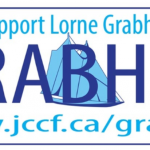Nova Scotia RCMP will participate in Canada Road Safety Week from May 16 to 22 and National Impaired Driving Enforcement Day on May 20.
During this time, police will focus on curbing behaviours that put road users most at risk, including impaired driving, distracted driving, aggressive driving and improper seat belt use.
Officers will set up checkpoints at strategically selected locations across the province, some of which will be in partnership with Cape Breton Regional Police, Halifax Regional Police and MADD. These checkpoints will enforce road safety priorities including sober and focused driving, proper seat belt use and driving at safe speeds. Police will also look for proper license and registration.
“Unfortunately, some drivers put road users at risk by irresponsibly consuming drugs and alcohol,” says Cst. Chad Morrison of the Nova Scotia RCMP. “Impaired drivers have all sorts of excuses but they don’t stand up against sobriety testing.”
Sobriety testing comes in a variety of forms including roadside testing by an Approved Screening Device (ASD), Standard Field Sobriety Test (SFST) and evaluation by a Drug Recognition Expert (DRE).
If you have consumed alcohol, police may demand you provide a roadside breath sample for assessment by an Approved Screening Device (ASD). If your sample is above80mg%, you will need to provide more samples at a police detachment. If any of those samples exceed 80mg%, you may be charged with impaired driving.
If you have consumed alcohol, drugs or a combination of alcohol and drugs, a police officer may demand you take a Standard Field Sobriety Test (SFST). An SFST is a series of standardized tests typically performed roadside.
If a police officer has reasonable grounds to believe that you have consumed drugs (including prescription drugs) or a combination of alcohol and drugs, they may demand you be evaluated by a Drug Recognition Expert (DRE), a police officer specially trained to determine drug impairment. This can be done roadside or at a detachment. If you are found to be impaired, you could be charged with impaired driving.
Failure or refusal to participate in any type of sobriety testing may result in criminal charges that have the same penalties as impaired driving. These penalties may include jail time, license suspension, fines and/or being sentenced to driver rehab. Newly licensed drivers are subject to different requirements and are not permitted to consume any alcohol before getting behind the wheel.
If you drive impaired, you increase your risk of injuring or killing yourself and others. Help keep roads safe by avoiding high-risk behaviours such as driving impaired, distracted or aggressively. Always wear your seatbelt and remember that you have the power to protect yourself and others.
.
Source: Media Release



